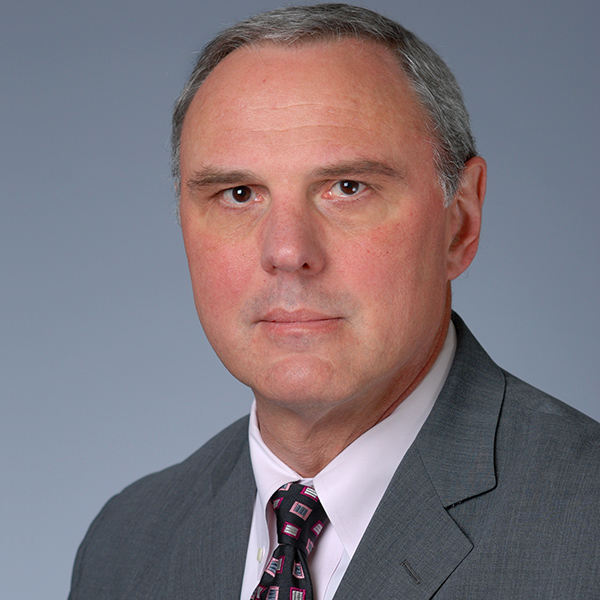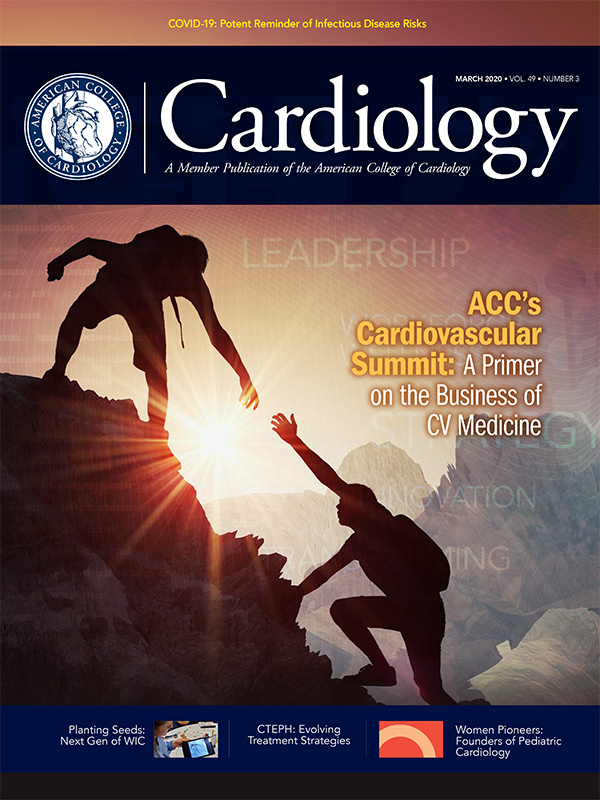Editor's Corner | Dear Colleagues, A Guest Editorial by ACC President Richard J. Kovacs, MD, FACC

As this issue of Cardiology was going to print, the College made the difficult decision to cancel ACC.20/WCC scheduled to take place March 28 – 30 in Chicago, IL.
This decision to cancel our flagship annual event was not taken lightly. The ACC has been closely monitoring updates and recommendations from the Centers for Disease Control and Prevention (CDC) and the World Health Organization (WHO), as well as state and local governments, as COVID-19 continues to spread.
An increasing number of travel restrictions by hospitals, universities and major businesses in the U.S. and globally was also impacting attendees and exhibitors alike.
The health, safety and well-being of our members, staff, exhibitors, faculty and the patients we serve are of paramount importance.
With an ever-increasing number of ACC members on the front lines of preparing and reacting to the COVID-19 outbreak, it is in the best interest of everyone to cancel the meeting and ensure our members are able to do what they do best – help and heal.
This is a first for us. We have never not held an Annual Scientific Session live and in person in the last 69 years. The Annual Scientific Session is eagerly awaited by all members from seasoned experts to first time abstract presenters.
Hundreds of participants have been preparing their work to present live. ACC.20/WCC is also the time to personally engage with experts, old friends and new colleagues, as well as personally visit exhibits of the newest technologies.
With that in mind, ACC leadership and staff are hard at work to not only provide COVID-19 guidance and preparedness tips to the entire cardiovascular care team, we are also developing ways to recognize our award winners and deliver the important science and education from ACC.20/WCC directly to you.
This is a unique time for us all, but ACC members and the cardiovascular profession as a whole have a long history of innovation and rising to meet whatever challenges come our way.
Please know that the College is here for you and we will not waver in our commitment to provide the resources, education and support you need to deliver the best care for your patients.
Last, but certainly not least, a meeting the size of ACC.20/WCC is years in the making and involves hundreds of member volunteers and staff, as well as generous support from partners and stakeholders and close collaboration with our host city.
Please join me in recognizing all these individuals, particularly ACC.20/WCC Chair Andrew M. Kates, MD, FACC, and Vice-Chair Pamela B. Morris, MD, FACC, as well as World Heart Federation President Karen Sliwa, MD, PhD, FACC, WHF President-Elect Fausto Pinto, MD, FACC, and WHF CEO Jean Luc Eisele and his team for all their work.
Thank you for all that you do every day to serve your patients and your communities.
Sincerely,
Richard J. Kovacs, MD, FACC
ACC President
Updated ACC Clinical Update Addresses Cardiac-Specific Preparedness for CV Care Team
The ACC has updated its COVID-19 Clinical Update to include guidance given current COVID-19 uncertainty, as well as recommendations for cardiac-specific preparedness.
Among the recommendations:
- Make plans for quickly identifying and isolating cardiovascular patients with COVID-19 symptoms from other patients, including in the ambulatory setting.
- In geographies with active COVID-19 outbreaks, it may be reasonable to substitute telephonic or telehealth visits for in-person routine visits for stable CVD patients to avoid possible nosocomial COVID-19 infection; planning for emergency telehealth protocols should begin now.
- For patients with heart failure or volume overload conditions, copious fluid administration for viral infection should be used cautiously and carefully monitored.
- In some settings, the cardiovascular care team (including physicians, nurses, technicians, etc.) may have limited training and experience with the acute management of pandemic disease; the routine transmission of COVID-19 to health care workers suggests that everyday infectious disease mitigation precautions are insufficient and health care workers in outbreak geographies must be prepared to adopt personal protection measures. Training in use of personal protective equipment should start now.
- Specific protocols should be developed for the management of AMI in the context of a COVID-19 outbreak, both for patients with and without a COVID-19 diagnosis.
- General immunological health remains important for both providers and patients, including eating well, sleeping and managing stress.
Clinical Topics: COVID-19 Hub
Keywords: ACC Publications, Cardiology Magazine, Disease Outbreaks, Centers for Disease Control and Prevention, U.S., World Health Organization, Coronavirus, Coronavirus Infections, COVID-19
< Back to Listings


